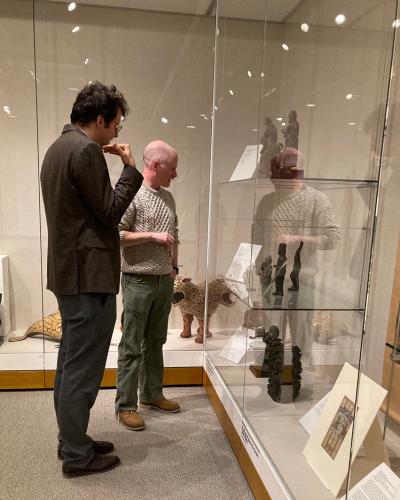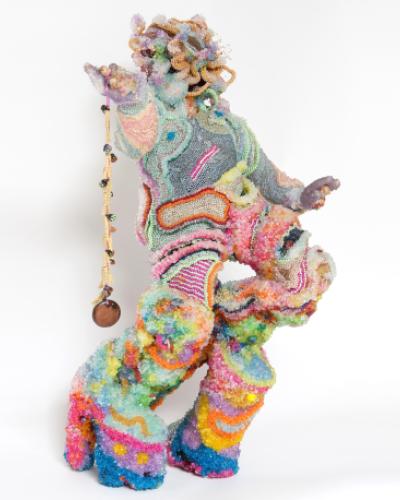Announcing the 2020-21 Fellows at the :
Paul Fleming, Taylor Family Director
Annette Richards, Interim Director
Fellows
Julie Phillips Brown, English, Virginia Military Institute
The New Sister Arts: Women and the Poet-Artist’s Book
Georgia Frank, Religion, Colgate University
Making and Doing Emotion in Late Ancient Christianity
Anthony Lovenheim Irwin, Southeast Asian Studies
Building Buddhism in Chiang Rai, Thailand: Construction as Religion
Jeffrey West Kirkwood, Art History, Cinema, Binghamton University
The Future Was Bright: A History of Optical Technologies and Impossible Futures
Kimberly Kay Lamm, Gender, Sexuality, and Feminist Studies, Duke University
Fabricating Truths: Sartorial Self-Fashioning and the Legacies of Enslavement
Adin E. Lears, English, Virginia Commonwealth University
Big Science: Craft-Knowledge and Creature Futures in the Age of Chaucer
Stephan Pennington, Music, Tufts University
Passing Tones: Transgender Vocality, Race, and Music
Faculty Fellows
Jill Frank, Government
The Beauty of Equality
Nicole Julia Giannella, Classics
The Mind of the Slave: The Limits of Ownership in Roman Law and Society
Denise Nicole Green, Fiber Science and Apparel Design, College of Human Ecology
Curating Fashion
Lauren Monroe, Near Eastern Studies
Becoming Israel: Political Identity and the Song of Deborah
Mellon Graduate Fellows
Rebekah Ciribassi, Anthropology
Fierce Blood and Gentle Genes: Sickled Cells and the Fabrication of Intergenerational Bodies in Tanzania
Austin Lillywhite, English
Sensuous Fabrications, Fabulist Forms: Race, Queerness and the Ecology of Imagination
Mellon Postdoctoral Fellows
Hannah LeBlanc, Science & Technology Studies
Disposable: A History of Food Packaging
Jon Ander Mendia, Linguistics
The Grammar of Ignorance
Juan Manuel Aldape Muñoz, Performing & Media Arts
Choreotopias: Performance, State Violence, and the Near Past
Mathura Umachandran, Classics
Critical Mythologies: Classical Reception and the Frankfurt School
The Year of FABRICATION
In so far as homo faber demarcates the human as artisan, as one who works and produces (or perhaps refuses to participate in an economy of production and reproduction), fabrication necessarily calls upon studies of labor, manufacturing, and (mass-)production. In this sense, fabrication connotes a materiality or tactility that stretches from the factory floor to the loom, and can be apprehended in metal and wood, plastics and dyes, canvas and paper, clays and concretes, fabrics and textiles.
From the weaving of Penelope to the communal knitting of ‘pussy hats,’ fabrication is gendered and embodied, mythologized and politicized, turning domestic crafts (often ‘women’s work’) into acts of resistance. Through fashion, costume, adornment, and drag, fabrication is woven into questions of embodiment, gender, sexuality, performance, and transformation. Communities and identities can be crafted, agency conjured, systems of power refashioned.
Raising the relation between the high and low arts, the artist and the worker, the poet and rhetorician as well as the gendering of production and reproduction, fabrication lies at heart of the art and humanities.
Read the full FABRICATION focal theme description.
Image: Raúl de Neieves, Daves of Wonder, courtesy of the artist & Freedman Fitzpatrick Gallery





